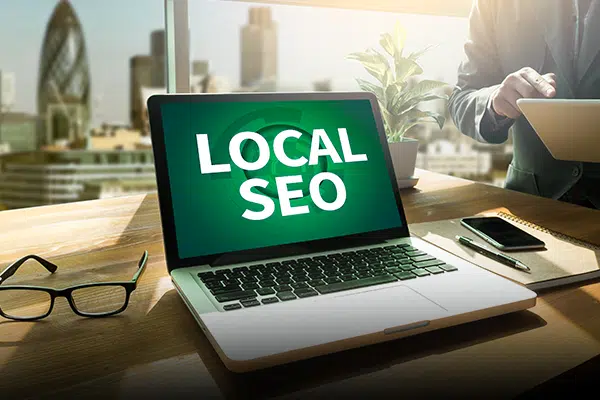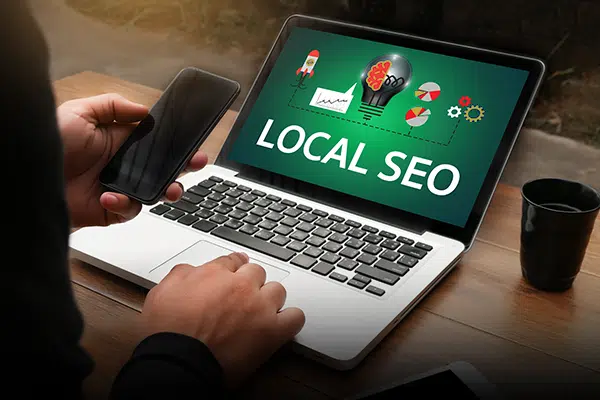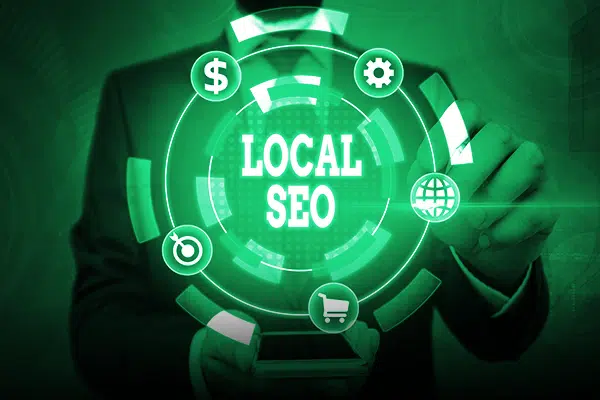
Article At Glance
- Local SEO is essential in today’s competitive digital landscape and involves optimizing your website to attract customers from local searches.
- The top tools for local SEO include Google My Business, SEMrush, Yext, Moz Local, BrightLocal, Whitespark, and Ahrefs.
- These tools help manage local listings, track keyword performance, and monitor online reviews.
- To implement local SEO strategies using these tools, start by auditing your online presence and conducting local keyword research.
- On-page optimization, content creation and marketing, link building and citations management, and review management are crucial in a successful local SEO strategy.
Welcome to a comprehensive guide on the top local SEO tools that could be the game-changer for your small business’s digital growth. In this era of intense online competition, being at the top of search engine result pages is essential for attracting local customers. Whether a small brick-and-mortar store or a local service provider, leveraging local SEO tools can significantly improve your online visibility, enhance user experience, and drive more foot traffic to your physical location.
Small businesses and local entrepreneurs often overlook the power of local SEO, instead focusing on broader marketing strategies. However, with more and more people turning to online searches to find local services or products, optimizing your online presence for local searches is non-negotiable.
So what exactly is local SEO, and how do tools play a crucial role in its execution?

Understanding Local SEO and Its Importance
Local SEO is optimizing your website to attract business from local searches. It’s more than adding your city or county name to your website’s metadata. It involves a complex combination of on-page optimization, local content, online reviews, and local listings, which can significantly increase your business’s online visibility.
Why is local SEO important? Consider these statistics:
- 46% of all Google searches are seeking local information.
- 68% of people say their location is critical to search results.
- 88% of consumers who search for a local business on a mobile device call or go to that business within 24 hours.
If those numbers don’t shout “opportunity,” I don’t know what will! By ignoring local SEO, you could be missing out on a significant portion of potential customers who are right at your doorstep, literally and figuratively.
Here are the tools that can help you get on the local SEO bandwagon and climb the search engine results ladder.

The Top Local SEO Tools to Transform Your Digital Presence
Local SEO requires attention to detail and consistency. The number of ranking factors that search engines consider highlights the need for robust tools to manage your local online presence effectively. Here are some of the top local SEO tools that cater specifically to small businesses and local entrepreneurs:
Google My Business: The Local Business Listing Powerhouse
If there’s one tool you must use for local SEO, it’s Google My Business (GMB). It’s a free, easy-to-use tool that allows you to manage how your business appears on Google Search and Maps. Claiming and optimizing your GMB listing can significantly impact your local SEO efforts. Ensure your profile has the right categories, keywords, and customer reviews to stand out in local searches.
SEMrush: Comprehensive Local SEO Toolkit
For a more sophisticated approach, SEMrush is a powerhouse of SEO resources that cover all aspects of local SEO. From keyword research to page optimization, and from local listing management to position tracking, SEMrush offers a comprehensive local SEO toolkit. It not only helps you spot opportunities but also lets you track your progress and that of your competitors.
Yext: Locally Optimized Digital Knowledge Management
Yext is known for its Digital Knowledge Management platform. It lets businesses manage their digital knowledge in the cloud and sync it to over 100 services, including Google, Alexa, Apple, Bing, Facebook, and Yelp. By managing your listings, reviews, and social media from a single platform, Yext ensures that the information consumers see online about your business is correct, consistent, and up-to-date, enhancing your local search visibility.
Moz Local: Automated Local Listing Management
Moz Local is a must-have for small businesses looking to increase their visibility in local searches. The tool distributes your business information to local directories, ensuring that your name, address, and phone number (NAP) data is consistent across the web. It’s a vital step in managing your online reputation and making sure search engines understand where your business is and how they can reach you.
BrightLocal: Local SEO Reporting and Analysis
BrightLocal specializes in local SEO reporting and analysis. It’s tailor-made for local businesses, offering features like local rank tracking, citation building, review monitoring, and more. Its reports are detailed and easy to understand, making it simpler for you to keep track of your performance and make informed decisions on how to move forward with your SEO strategy.
Whitespark: Reputation for Local SEO
Whitespark’s local SEO tools are designed to help you increase your online visibility within local markets. Its services, from citation building to review management, are widely respected for their reliability and effectiveness. It’s an excellent tool for small businesses and agencies managing multiple client accounts.
Ahrefs
Although not exclusively a local SEO tool, Ahrefs is an all-in-one SEO toolset that excels in keyword research, backlink tracking, and competitor analysis. For local businesses, Ahrefs’ keyword explorer can help uncover keywords with high local search volumes that you can target to dominate local search results.

Implementing Local SEO Strategies with These Tools
Now that you’re acquainted with the tools, how do you implement local SEO strategies using them? Here’s a step-by-step guide.
Step 1: Audit Your Current Online Presence
Before you start optimizing, it’s crucial to understand where you currently stand. Use the tools mentioned above to audit your local SEO standing. Look for inconsistencies in your NAP data, check for duplicate listings, and assess your online reputation.
Step 2: Keyword Research
Local keyword research is slightly different from regular keyword research. Concentrate on including your location in your target keywords, and look for “near me” searches relevant to your business. SEMrush and Ahrefs’ keyword explorer are excellent tools for this.
Step 3: On-Page Optimization
Ensure your website specifies your location with NAP data on every page. Use your location in your titles, meta descriptions, and content where naturally possible. SEMrush and Moz Local guide how to optimize your pages for local search.
Step 4: Content Creation and Marketing
Create localized content that caters specifically to your area. This could include blogs about local events, guides to local attractions, or testimonials from local customers. Use BrightLocal to track local keywords’ performance in content marketing efforts.
Step 5: Link Building and Citations
Acquire backlinks from local organizations and ensure your business is listed in local directories. Whitespark can assist with finding opportunities for local citations, and Yext can ensure consistency across these platforms.
Step 6: Review Management
Encourage satisfied customers to leave positive reviews and promptly address any negative reviews. Tools like Yext, Moz Local, and Whitespark can help monitor and manage your online reputation more effectively.

Conclusion
Local SEO tools are not just an option; they are the new imperative for businesses looking to grow their digital footprint within their local communities. Whether you are a tech-savvy local entrepreneur looking for sophisticated tools like SEMrush or a small business owner needing a simpler solution like Google My Business, there’s a local SEO tool for you.
Harness the power of local SEO tools to stay ahead in the competitive digital landscape. Prioritize consistent NAP data, engaging locally relevant content, and a stellar online reputation to boost your business in local search rankings. Remember, relevance and user experience are vital in local SEO – these tools can help you ace that. For more insights on our SEO services, visit: https://yourportalonline.com/seo-service/
